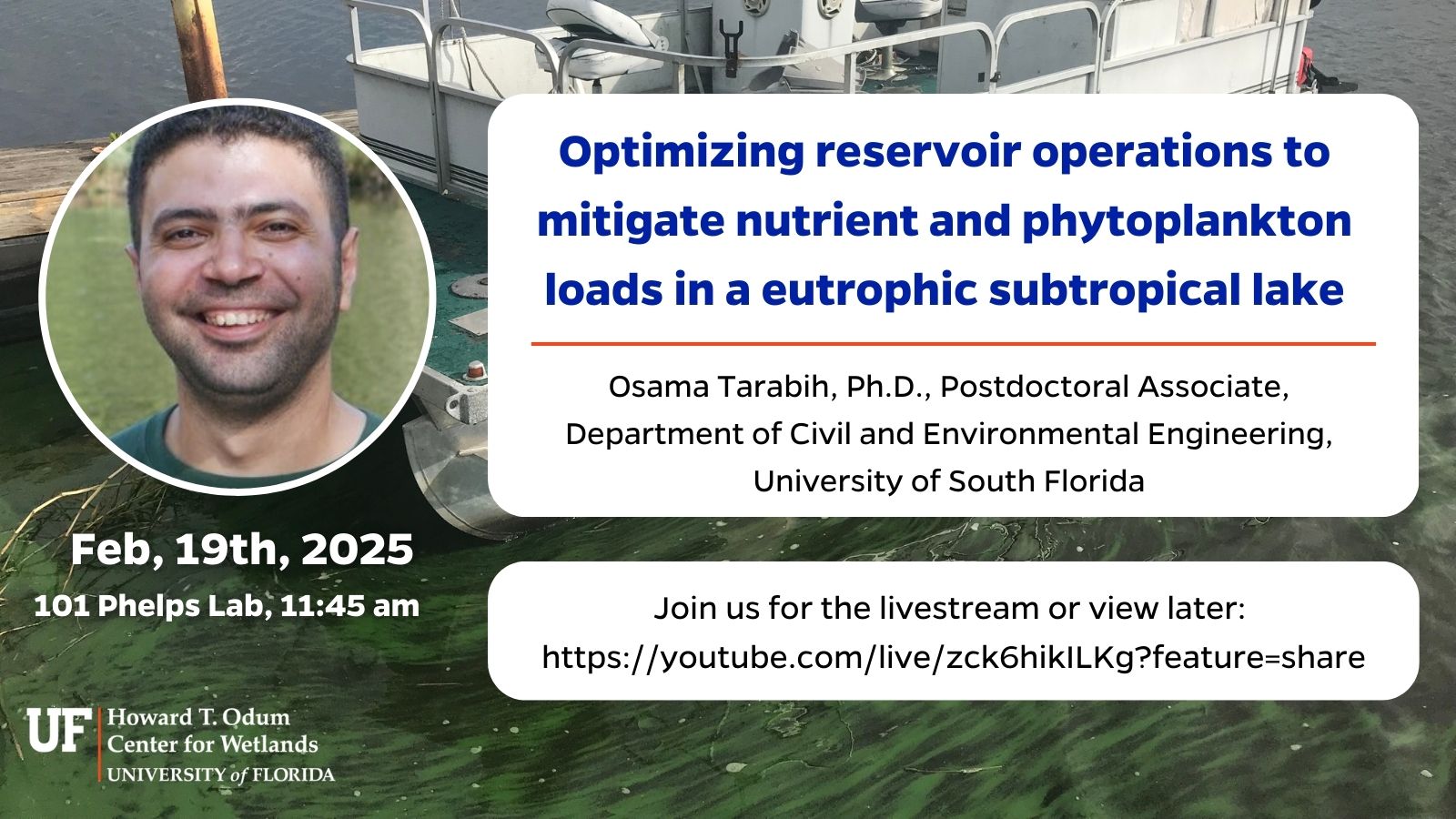
Osama Tarabih, Ph.D., Postdoctoral Associate, Department of Civil and Environmental Engineering, University of South Florida
Join us for the livestream February 19, 11:45am ET: https://youtube.com/live/zck6hikILKg?feature=share
(Please visit our YouTube channel main page for the stream if there are any issues with the direct link.)
ABSTRACT
Harmful algal blooms have large impacts on aquatic ecosystem and human health. Nutrient enrichment, in combination with warm water temperatures, high light availability, and low water turbulence, have been proven to be major factors driving algal blooms. In this study, lake eutrophication processes, including phytoplankton production and nutrient cycling, were simulated and coupled with a reservoir operations model to optimize multi-criteria lake operation goals. The main objective of this study was thus to design reservoir operations that minimized phosphorus (P), nitrate-nitrogen (NOx), and phytoplankton loads to downstream water bodies, while meeting other societal water resource demands in eutrophic Lake Okeechobee, the largest subtropical lake in the USA. We used an open-source, multi-objective evolutionary algorithm framework with four optimization objectives (minimizing P, NOx, and phytoplankton loads and water demand deficiits), assessing each constituent separately and in combination. In addition, different optimization scenarios associated with each objective were investigated. We identified multiple opportunities to reduce downstream loads while minimizing impacts on water demand deficits. Notably, considering combined load objectives yielded substantial reductions in summertime P, NOx, and phytoplankton exports by up to 73%, 82%, and 73%, respectively, with minimal increases in water demand deficits. The coupled model offers the flexibility to explore alternative operational strategies in the future and can be adapted to other similar settings, providing a useful tool for balancing downstream water quality and societal water resource needs.
BIO
Osama Tarabih is a dedicated researcher with a strong passion for hydrology, ecology, and developing innovative engineering solutions to mitigate environmental impacts caused by altered hydrological systems. He currently serves as a postdoctoral scholar at the University of South Florida (USF), where his research focuses on hydrologic and water quality modeling of watersheds and lakes. Through his work, Osama aims to guide decision-makers in designing optimal management strategies that enhance water quality and improve the well-being of communities reliant on these resources. Osama earned his Ph.D. in Civil and Environmental Engineering from USF in December 2022. Before joining USF in the spring of 2018, he was an Assistant Lecturer in the Department of Irrigation and Hydraulics at Cairo University, where he obtained a master’s degree in hydrology and water resources engineering. His diverse academic and professional experiences reflect his commitment to addressing critical environmental challenges and advancing sustainable water resource management.
POSTCARD
